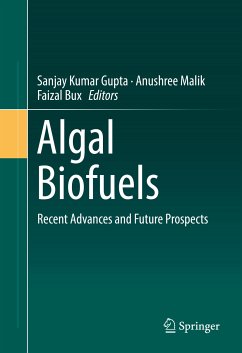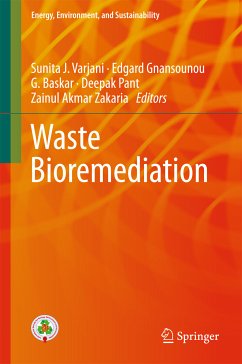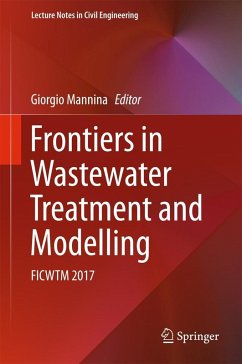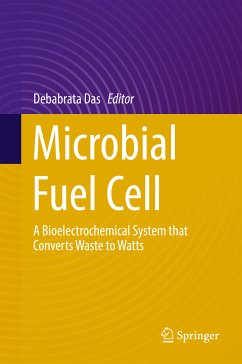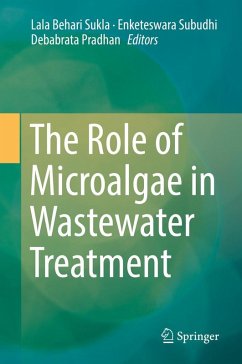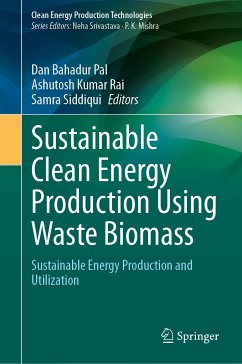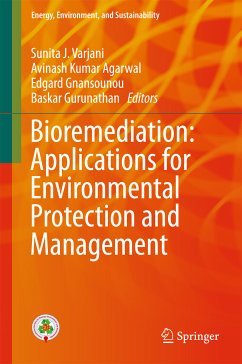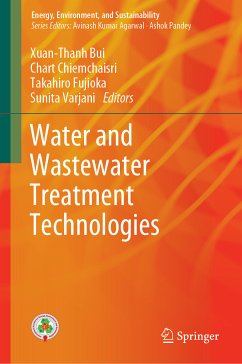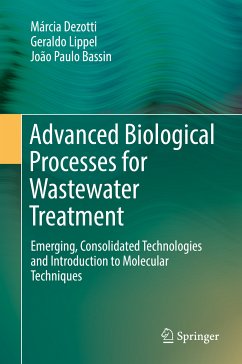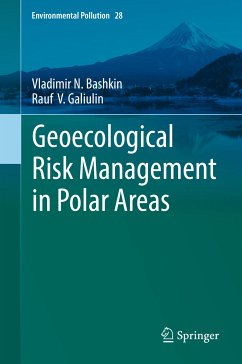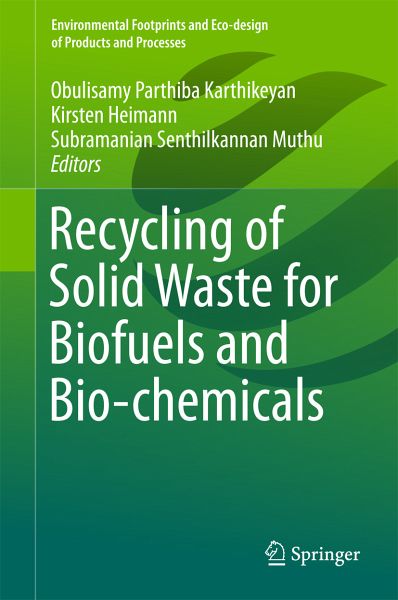
Recycling of Solid Waste for Biofuels and Bio-chemicals (eBook, PDF)
Versandkostenfrei!
Sofort per Download lieferbar
112,95 €
inkl. MwSt.
Weitere Ausgaben:

PAYBACK Punkte
56 °P sammeln!
This book presents the latest advances in and current research perspectives on the field of urban/industrial solid waste recycling for bio-energy and bio-fuel recovery. It chiefly focuses on five main thematic areas, namely bioreactor landfills coupled with energy and nutrient recovery; microbial insights into anaerobic digestion; greenhouse emission assessment; pyrolysis techniques for special waste treatment; and industrial waste stabilization options. In addition, it compiles the results of case studies and solid waste management perspectives from different countries.
This book presents the latest advances in and current research perspectives on the field of urban/industrial solid waste recycling for bio-energy and bio-fuel recovery. It chiefly focuses on five main thematic areas, namely bioreactor landfills coupled with energy and nutrient recovery; microbial insights into anaerobic digestion; greenhouse emission assessment; pyrolysis techniques for special waste treatment; and industrial waste stabilization options. In addition, it compiles the results of case studies and solid waste management perspectives from different countries.
Dieser Download kann aus rechtlichen Gründen nur mit Rechnungsadresse in A, B, BG, CY, CZ, D, DK, EW, E, FIN, F, GR, HR, H, IRL, I, LT, L, LR, M, NL, PL, P, R, S, SLO, SK ausgeliefert werden.
Alle Preise in Euro und inkl. der gesetzl. MwSt. | Innerhalb Deutschlands liefern wir preisgebundene Bücher versandkostenfrei. Weitere Informationen: bitte hier klicken
Support
Bitte wähle dein Anliegen aus:
Rechnungen
Bestellstatus
Retourenschein
Storno



